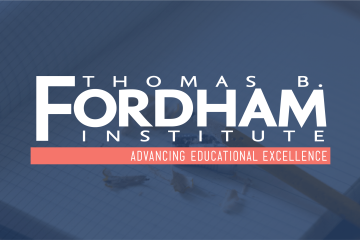While the Common Core has hogged the national spotlight of late, standards-based reform is just one of many improvement strategies coursing through our nation’s schools and classrooms today. But will educators’ and policymakers’ obsession with the Common Core hinder the rest of the reform agenda? This volume from AEI’s Rick Hess and Michael McShane examines a wide swath of Common Core–related topics—the impetus behind the creation of the standards, potential long-term governance models, the prospects for the development of social-studies standards, and on—but the most consequential chapters are those that consider the interplay between the Common Core and other reform initiatives. There are chapters devoted to teacher evaluation, charter schools, accountability, and education technology, each addressing how said reforms might affect or be affected by the transition to the new standards. For instance, how should we set proficiency levels for Common Core–aligned assessments? And how should we tackle accountability and teacher evaluation in a way that’s fair to educators but, most importantly, promotes student learning? Rather than arguing for or against the standards themselves, this volume takes a pragmatic (though markedly cautious) approach. And if the Common Core standards are to reach their full potential on behalf of the nation’s students, all stakeholders—educators, advocates, and policymakers alike—would do well to ponder the issues posed in this volume.
SOURCE: Frederick M. Hess and Michael Q. McShane (eds.), Common Core Meets Education Reform: What It All Means for Politics, Policy, and the Future of Schooling (New York: Teachers College Press, 2013).



